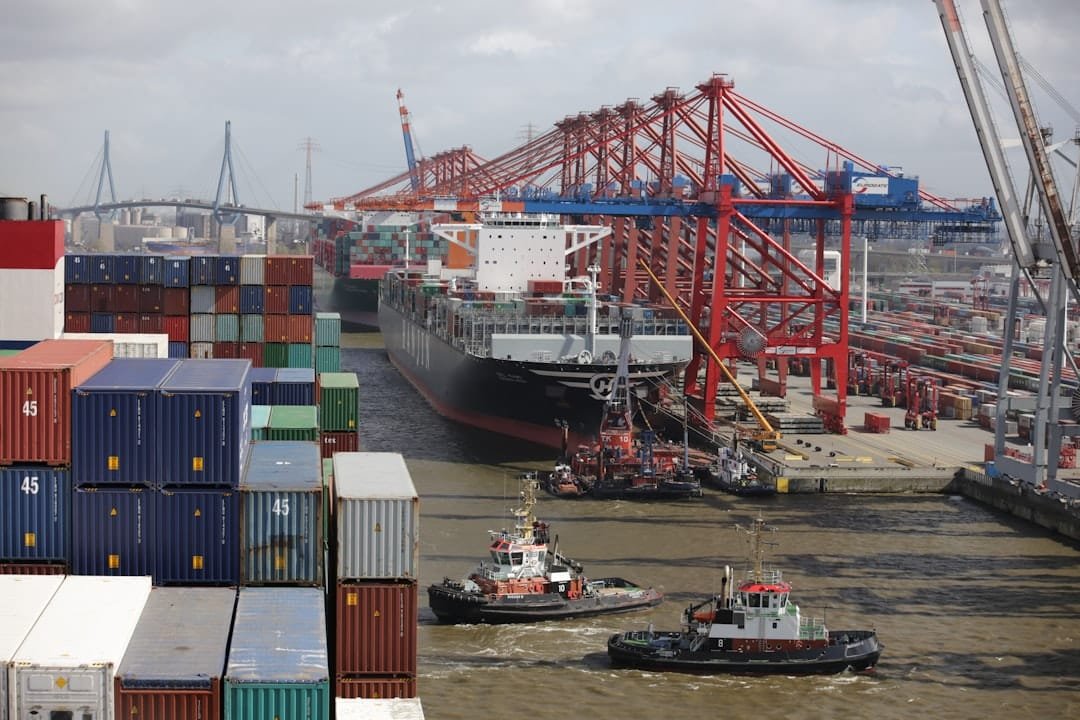Globalization has transformed the world into a closely interconnected and interdependent global village. It has led to the integration of economies, cultures, and societies, resulting in increased trade, investment, and technological exchange across borders. This phenomenon has had a profound impact on taxation and regulations, as the traditional boundaries of national tax systems and regulations have become increasingly blurred.
The rise of multinational corporations (MNCs) and the digital economy has further complicated the landscape of global taxation and regulations, posing both challenges and opportunities for governments and international organizations. Globalization has led to a significant increase in cross-border trade and investment, resulting in a more complex web of international tax rules and regulations. As a result, governments are facing growing pressure to adapt their tax systems to the changing global economic landscape.
At the same time, the digital economy has created new challenges for taxation, as it has become increasingly difficult to determine where value is created and where profits should be taxed. These developments have sparked intense debates about the need for international cooperation and coordination in addressing the challenges of global taxation and regulations.
Key Takeaways
- Globalization has significantly impacted taxation and regulations worldwide, leading to both challenges and opportunities for countries and multinational corporations.
- Multinational corporations play a crucial role in shaping global taxation and regulations through their operations and influence on international policies.
- Implementing global taxation and regulations presents challenges such as coordination among countries and opportunities for standardization and cooperation.
- Globalization has led to increased tax avoidance and evasion, posing a significant challenge for governments and international organizations.
- International organizations play a key role in harmonizing global taxation and regulations, aiming to create a fair and transparent system for all countries and corporations.
The Role of Multinational Corporations in Shaping Global Taxation and Regulations
The Tax Planning Strategies of MNCs
MNCs often engage in complex tax planning strategies, such as profit shifting and transfer pricing, to minimize their tax liabilities. These strategies have prompted governments to take action to prevent tax avoidance and ensure that MNCs pay their fair share of taxes.
MNCs’ Influence on Global Tax Policies
At the same time, MNCs have also been influential in shaping global tax policies through their lobbying efforts and participation in international tax negotiations. They have pushed for lower corporate tax rates and favorable tax incentives to attract investment, often leading to a race to the bottom in corporate taxation.
The Challenges for Governments
This has created challenges for governments in maintaining a competitive tax environment while ensuring that MNCs contribute to the public coffers.
Challenges and Opportunities in Implementing Global Taxation and Regulations

The implementation of global taxation and regulations presents both challenges and opportunities for governments and international organizations. One of the main challenges is the lack of international consensus on key tax issues, such as the taxation of digital services, transfer pricing rules, and the allocation of taxing rights between countries. This has led to a fragmented international tax system, with different countries adopting unilateral measures to address these issues, often resulting in double taxation or no taxation at all.
On the other hand, there are opportunities for cooperation and coordination in addressing these challenges. International organizations, such as the Organisation for Economic Co-operation and Development (OECD) and the G20, have been working on initiatives to address base erosion and profit shifting (BEPS) and develop a framework for taxing the digital economy. These efforts aim to create a more level playing field for businesses and ensure that profits are taxed where economic activities take place.
Another opportunity lies in the use of technology to improve tax administration and compliance. Digital tools, such as electronic invoicing, data analytics, and blockchain technology, can help governments track cross-border transactions and combat tax evasion. Furthermore, the exchange of information between tax authorities through initiatives like the Common Reporting Standard (CRS) can enhance transparency and deter tax evasion.
The Impact of Globalization on Tax Avoidance and Evasion
Globalization has had a significant impact on tax avoidance and evasion, as it has provided opportunities for individuals and businesses to exploit differences in tax systems across countries. The mobility of capital and income has made it easier for taxpayers to shift profits to low-tax jurisdictions or hide assets offshore. This has led to a loss of tax revenue for governments and created an uneven playing field for businesses that cannot engage in aggressive tax planning.
The digital economy has further exacerbated these challenges, as it has enabled businesses to operate without a physical presence in a country, making it difficult for tax authorities to track their activities and profits. This has raised concerns about the fairness of the international tax system and the need to adapt it to the realities of the digital age. To address these challenges, governments have been taking steps to combat tax avoidance and evasion through measures such as country-by-country reporting, controlled foreign company rules, and anti-avoidance provisions.
International cooperation is also crucial in this regard, as it can help prevent taxpayers from exploiting gaps in the international tax system.
The Role of International Organizations in Harmonizing Global Taxation and Regulations
International organizations play a crucial role in harmonizing global taxation and regulations by facilitating cooperation among countries and developing common standards and best practices. The Organisation for Economic Co-operation and Development (OECD) has been at the forefront of efforts to address international tax challenges through its BEPS project, which aims to prevent multinational enterprises from shifting profits to low-tax jurisdictions. The OECD has also been working on developing a framework for taxing the digital economy, which has been a source of contention among countries with different views on how digital services should be taxed.
The ongoing discussions on this issue highlight the importance of international cooperation in finding common ground on complex tax issues. In addition to the OECD, other international organizations, such as the International Monetary Fund (IMF) and the World Bank, also play a role in promoting good governance and transparency in taxation. They provide technical assistance to developing countries to strengthen their tax systems and combat tax evasion, helping to create a more level playing field in the global economy.
The Future of Global Taxation and Regulations in the Era of Globalization

The future of global taxation and regulations will be shaped by ongoing efforts to address the challenges posed by globalization. As the digital economy continues to evolve, there will be a need for greater international cooperation to develop a consensus on how digital services should be taxed. This will require countries to work together to find solutions that are fair, efficient, and sustainable in the long term.
Another key issue for the future is the need to address the growing complexity of international tax rules and regulations. As businesses become more globalized, there will be a need for greater clarity and certainty in the application of tax laws across borders. This will require continued efforts to develop common standards and best practices that can be applied consistently by countries around the world.
Furthermore, there will be a need for greater transparency and information exchange among countries to combat tax evasion effectively. Initiatives such as the Common Reporting Standard (CRS) have been instrumental in improving transparency in cross-border financial transactions, but there is still room for improvement in this area.
Balancing the Benefits and Challenges of Globalization on Taxation and Regulations
In conclusion, globalization has had a profound impact on taxation and regulations, presenting both challenges and opportunities for governments and international organizations. The rise of multinational corporations and the digital economy has created new complexities in international taxation, leading to concerns about tax avoidance and erosion of the tax base. However, there are also opportunities for cooperation and coordination in addressing these challenges through initiatives such as the OECD’s BEPS project and efforts to develop a framework for taxing the digital economy.
The future of global taxation and regulations will depend on the ability of countries to work together to find common ground on complex tax issues and develop common standards that can be applied consistently across borders. This will require continued efforts to promote transparency, combat tax evasion, and ensure that multinational corporations pay their fair share of taxes. By balancing the benefits and challenges of globalization on taxation and regulations, countries can create a more level playing field for businesses and ensure that tax systems remain fair, efficient, and sustainable in the era of globalization.
If you’re interested in learning more about the impact of globalization on global taxation and regulations, be sure to check out The Econosphere’s blog. They have a variety of articles that delve into this topic and provide valuable insights into the complexities of international tax laws and regulations. You can find more information on their blog here.
FAQs
What is globalization?
Globalization refers to the increasing interconnectedness and interdependence of countries and their economies, cultures, and societies. It is driven by advancements in technology, communication, and transportation, which have made it easier for goods, services, and information to flow across borders.
How does globalization affect global taxation?
Globalization has made it easier for multinational corporations to operate in multiple countries, leading to complex tax arrangements and the potential for tax avoidance. This has prompted efforts by governments and international organizations to address tax avoidance and ensure that companies pay their fair share of taxes in the countries where they operate.
What are some global tax regulations aimed at addressing the challenges of globalization?
Several global tax regulations have been introduced to address the challenges of globalization, including the Base Erosion and Profit Shifting (BEPS) project led by the Organisation for Economic Co-operation and Development (OECD). BEPS aims to prevent multinational companies from shifting profits to low-tax jurisdictions and to ensure that profits are taxed where economic activities take place.
How does globalization impact global regulations?
Globalization has led to the need for greater coordination and harmonization of regulations across countries, particularly in areas such as trade, finance, and the environment. International organizations such as the World Trade Organization (WTO) and the International Monetary Fund (IMF) play a key role in setting and enforcing global regulations to ensure a level playing field for countries and businesses.
What are some of the challenges of regulating globalization?
One of the main challenges of regulating globalization is the diversity of national interests and regulatory frameworks, which can make it difficult to reach consensus on global regulations. Additionally, the rapid pace of technological and economic change driven by globalization can outpace the ability of regulators to keep up with new developments.








